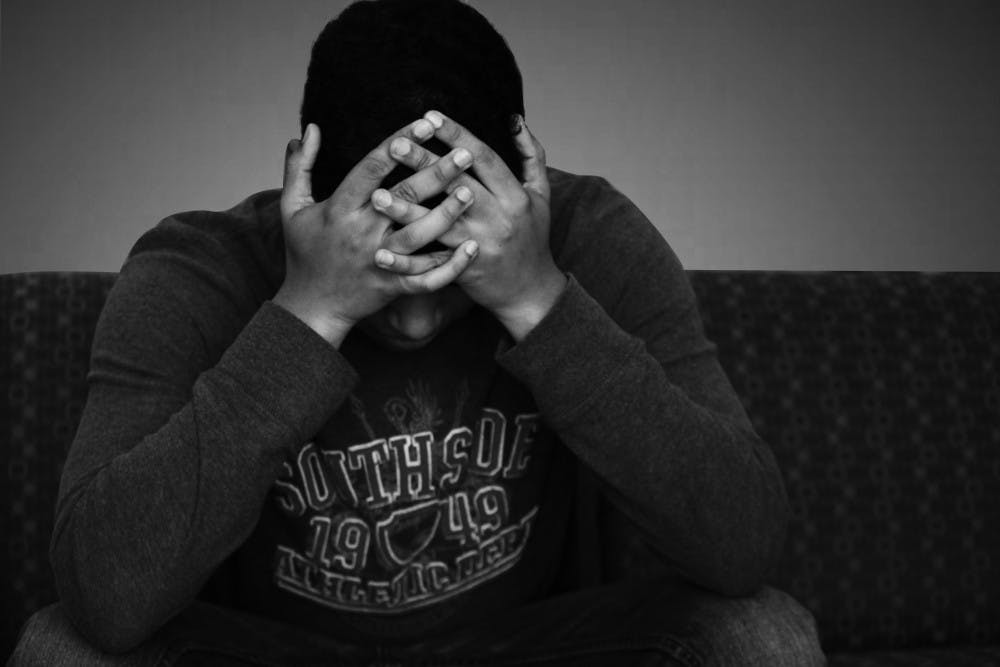
Following six student suicides, conversations surrounding mental health have been sparked by student groups on campus.
Credit: Teresa XuLast month, the Task Force on Student Psychological Health and Welfare’s report focused on “cultural change.” But some students have already taken up this mission.
Whether it’s a documentary about mental health on campus or the growth of the upcoming Mental Wellness Week, over the past few years, students are increasingly engaging in conversations about the topic.
Counseling and Psychological Services Director Bill Alexander said the “volume and intensity” of student focus on mental health has grown in the time since he became director in 1999. The CAPS Student Advisory Board, for example, is one of the groups that has existed for a number of years but has grown from a small number of students to more than 30 members.
But while the interest might be growing, some students still feel disconnected.
Last year, following six student suicides in 15 months, College senior Meredith Stern was struck by the lack of dialogue around mental health on campus. She chose to create a documentary about the topic for her Cinema Studies final. “It felt rather silent and that felt strange to me,” she said. She wanted her piece to be a “conversation starter.”
In her work, she learned about student groups that deal with the topic of mental health. “It seems like there may be resources out there that we can use other than official University resources like CAPS, but I don’t think they are advertised enough,” Stern said.
Director of Outreach and Prevention for CAPS Meeta Kumar said the increased collaboration between groups is helping to increase their presence. “That has been really great to see that they can support one another and really organize and then in that sense have a much wider impact,” she said.
For example, Tuesday night, the Penn Neuroscience Society will co-host a panel on the neurobiology of mental health and illness with Active Minds, Creative Spaces and the Penn Consciousness Club.
These groups grapple with the challenge of creating a legacy — one that might help to make the “cultural change” that the task force is recommending.
“The outcome is going to be long-term,” Kumar said. “You have to have the imagination and the tolerance to say ‘the work that I’m doing may not quite yield all of the outcome right away,' but that you’re passing it on.”
Another active mental health group, CogWell, started back in 2006 in collaboration with CAPS and the Vice Provost — before the hyper focus on the topic on campus. But new initiatives still emerge. Penn Benjamins, a peer-counseling group started by students and trained by CAPS therapists, is set to start next fall.
Active Minds, a national club that started at Penn in 2000, launched a blog called “Pennsive” last spring where students can share their own experiences dealing with mental illness.
Active Minds President and College junior Devanshi Mehta said the club sees its mission as being “the liaison between the student body and the mental health community.” She said she’s noticed increased motivation amongst members, especially with regards to advocacy and education. Still, she said, there is a limit to what groups can do.
“As students, we’re not licensed to provide therapy,” Mehta said. “As students what we can do is provide peer counseling. We can do the education and mental health awareness events.”
College sophomore Tara Rajagopal, a leader in the Penn Consciousness Club, said the club’s intention is to also be a resource on campus. Recently, it has collaborated with other campus groups and taught breathing techniques and mediation.
While Rajagopal praised the expansion of CAPS and the establishment of the HELP Line, she thinks the University should let students know that it’s okay to relax and “be human."
“I think we are working towards the culture change, but I don’t think it necessarily comes from the task force,” she said. “Often the people who are making the policy are removed from it,” Rajagopal said.
Both Alexander and Kumar said there should be a two-way conversation between students and the University in mental health awareness. “The faculty and staff might want to or be very well meaning and think of things, but they will always need to rely on students to guide them,” Alexander said. But the task force did not include any students on its panel.
“We are part of this Penn community and we are the ones that can create the culture and we can shift the culture,” Rajagopal said, adding that the best thing the University can do is fully support the clubs devoted to wellness.
“Students can do a lot, but the administration has a big role in validating the culture change,” she said.
The Daily Pennsylvanian is an independent, student-run newspaper. Please consider making a donation to support the coverage that shapes the University. Your generosity ensures a future of strong journalism at Penn.
DonatePlease note All comments are eligible for publication in The Daily Pennsylvanian.




